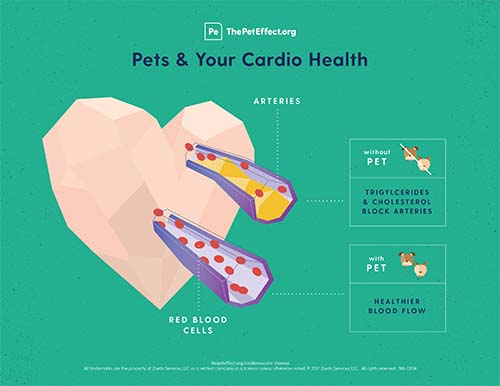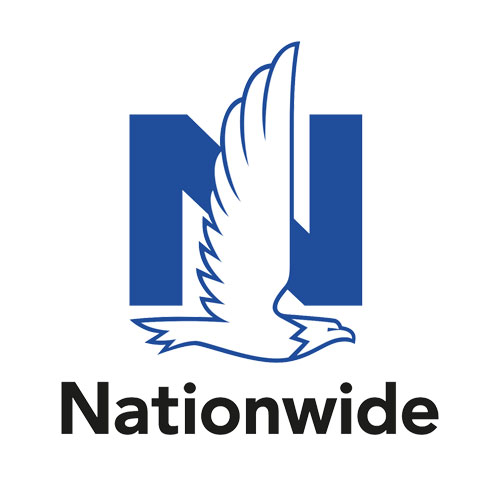Addressing Evidence-Based Health Benefits of Human-Animal Interaction
The Human Animal Bond Research Institute (HABRI) is issuing a call for research proposals from institutions and organizations across the globe to investigate the health outcomes of pet ownership and/or animal-assisted interventions (AAI), both for the people and the animals involved. Proposals should have a strong theoretical framework and focus on innovative approaches to studying the positive effects of companion animals on human health.
HABRI is interested in funding a wide range of studies focused on the human-animal bond.
Areas of interest include, but are not limited to:
- Studies investigating the vital role of pet ownership for the health and well-being of people, pets, and communities.
- Broadly generalizable human-animal bond studies impacting large populations in the categories of child health and development, healthy aging, mental health, and physical health.
- The human health impacts of animal-assisted interventions, including in professional practice, volunteer programs, and educational contexts, and research that refines or informs best practices to improve health outcomes and quality of life for the humans and animals involved.
- Studies that are translational in that at least one aim is to produce actionable advice, guidelines, and recommendations for policymakers as it relates to supporting pet owners, the human-animal bond and/or human-animal interactions.
- Studies that are translational in that at least one aim is to produce actionable advice, guidelines, and recommendations for veterinarians and other pet care professionals, pet owners and/or those interested in acquiring a pet.
- Studies with clinical implications for human health practitioners or studies with at least one aim to produce actionable advice, guidelines, and recommendations for human health practitioners working with and/or supporting pet owners, the human-animal bond and/or animal-assisted interventions.
- How companion animal ownership and/or interaction helps address those impacted by public health and social crises, such as generalized anxiety and stress; social isolation and loneliness; suicide, addiction, and substance abuse; access to social service and housing; trauma and/or post-traumatic stress; obesity and physical activity; and cardiovascular health.
- The role of pets in supporting the health and wellbeing of people from diverse backgrounds or underrepresented or minoritized populations.
- The role of the human-animal bond in veterinary medicine, including its impact on access to care, compliance and quality of care, and veterinary team wellbeing. Studies that explore the role of veterinarians and animal health professionals in human-animal bond research are also of interest.
- The bond between humans and a wide variety of pet species which may include (but are not limited to) dogs, cats, birds, reptiles, small mammals, horses and fish.
- International perspectives of the human-animal bond, investigating the health outcomes of pet ownership and/or AAI in countries, communities, and cultures, including those that are under-represented in current literature.
Evaluation will be based on rigor of study design and methods, potential for significant impact on future practices related to the understanding or treatment of mental and physical health conditions, capabilities of investigators, adequacy of facilities, cost-effective yet realistic budget, and for potential contribution to the scientific field of human-animal interaction (HAI), and relevance to HABRI’s mission.
Adherence to the highest standards of human and animal care and welfare is essential, and studies that also measure the welfare of the animals involved are important to HABRI’s mission of supporting the mutual health benefits of the human-animal bond. All funded studies must undergo Institutional Review Board (IRB) and/or Institutional Animal Care and Use Committee (IACUC) review and approval, and all animals participating in funded studies must be under the care of a veterinarian. No invasive procedures will be funded.
HABRI does not and shall not discriminate on the basis of race, color, religion, sex, sexual orientation, gender identity and expression, national origin, disability, military status, age, marital status, or parental status.
Additional Funding Through Pet Partners
Pet Partners, the leading therapy animal organization in the United States, is partnering with HABRI with the mission of improving human health and well-being through the power of the human-animal bond. This partnership allows for additional funding for research to investigate the health, education, and wellness outcomes of animal-assisted interventions (AAI), both for the people and animals involved. Proposals focusing within these broad categories are specifically encouraged:
- Determining best practices for effective AAI. For example, dosage, handler training, treatment protocols, etc.
- Studies that support the empirical appreciation for how therapy animal welfare can be protected and enhanced.
- The study of AAI in professional environments: AAT, AAE, etc.
- Investigations focusing on AAI with the non-canine species that are currently underrepresented in the literature.
- Studies involving virtual adaptation of AAI and other animal-related engagement
- Cross-cultural experiences of the human-animal bond.
- Studies focused on the impact of AAI on populations not currently represented in the literature. For example, AAI with diverse demographic, social economic, or population-based groups.
To increase the likelihood of receiving this additional funding, eligible proposals should, whenever possible, incorporate Pet Partners registered volunteer therapy animal teams into their proposed research. When Pet Partners teams aren’t available, therapy animal teams must meet the field’s standards of practice to support patient and public safety; outstanding animal welfare; and greater consistency for research purposes. For more information about securing the participation of Pet Partners registered volunteer therapy animal teams for proposed research, please contact Dr. Taylor Chastain-Griffin at taylorc@petpartners.org.
All of the guidelines, requirements, and deadlines associated with HABRI’s 2025 RFP apply to this additional funding opportunity. Applying for additional funding through Pet Partners does not preclude a proposal from being eligible for general HABRI grant funding. Applicants must indicate that they are applying for this supplemental funding by following the instructions laid out in the Proposal Guidelines.
HABRI Webinar: How to Submit a Proposal
Watch this webinar to learn more about HABRI and how to submit a competitive research proposal:
To Submit a Proposal:
Prior to submitting a proposal, please review the following documents:
To apply for a HABRI grant, please send an email to submissions@habri.org. Please ensure the subject line of the email and PDF submission are both titled “HABRI 2025 Grant Proposal – Principal Investigator Last Name.”.
For proposals applying for supplemental funding available through Pet Partners, please send an email to submissions@habri.org. Please ensure the subject line of the email and PDF submission are both titled “HABRI/Pet Partners 2025 Grant Proposal – Principal Investigator Last Name.”
Application Review Process:
Proposals will be evaluated by an independent review board comprised of experts from a variety of fields, including human-animal interaction, veterinary medicine, animal welfare, gerontology, psychology, neuroscience, child development and more.
Proposal submissions that do not meet the requirements of this request for proposals or the proposal guidelines will not qualify for consideration. Qualified proposals will first undergo an abstract review, where each proposal’s abstract, which will be blinded by researcher and institution, is evaluated based on design, potential for impact, and potential for contribution to the field of HAI. Therefore, it is vital that submitted abstracts are complete and clear. Proposal submissions that advance to the next round may then receive a full review.
Frequently Asked Questions:
- Is HABRI funding available to international applicants working outside the United States.
- Yes, international applicants from academic institutions and non-profit organizations are eligible to apply. There are no additional governance requirements in order to meet IRB and IACUC requirements (institutional approvals suffice). All dollar amounts must be expressed in U.S. dollars.
- Can you share the research projects that HABRI has funded in the past?
- A full list of HABRI-funded projects can be found here.
- Does HABRI fund capital projects or programmatic research?
- No, HABRI does not accept proposals seeking to fund capital projects
- Proposals that seek to evaluate the success of an existing program may be considered. However, proposals that seek funding solely for programmatic support will be rejected. If the Principal Investigator is the proprietor of the program, such proposals will face close scrutiny.
- Is there a maximum budget for a HABRI grant proposal?
- While there is no budget cap, HABRI awards an average of 5-6 projects each year with project costs averaging approximately $49,000 per project and an average duration of about 20 months.
For a full list of FAQs, click here.
More Information:
A sample application of a previously funded project, Sections I – XI only, can be found here. Please be aware that the HABRI proposal guidelines have been updated since this application was made.
For more information about HABRI, including currently funded research projects, please visit www.habri.org.
Please direct all inquiries about the application or award process to Matt Cryer at mcryer@habri.org.




